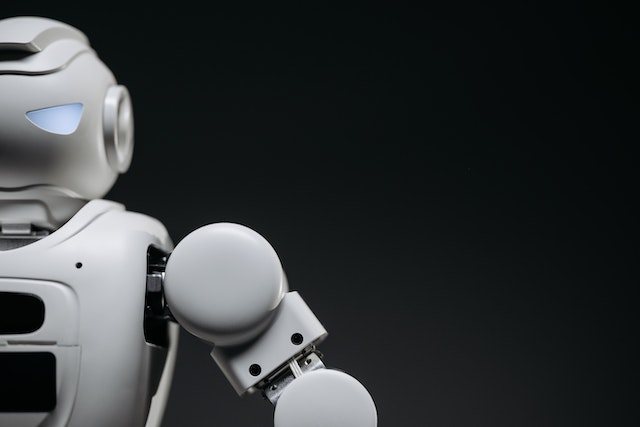As AI technology continues to develop, it is transforming the world in ways that were unimaginable only a few years ago. From self-driving cars to robotic personal assistants, AI technology is making things more innovative and efficient. AI technology is changing how more innovative we interact with technology, how businesses operate and even how governments function. In this blog post, we will look at some of the fantastic ways AI technology is transforming the world and the implications this has for the future.

What is AI?
Artificial intelligence is a type of computer technology that uses advanced algorithms to replicate the cognitive functions of humans, such as learning and problem-solving. AI has been around for decades, but it has recently seen a surge in popularity due to advances in computing power and access to massive amounts of data. AI can automate tasks, identify patterns, and make decisions or predictions based on past data. It is applied across many industries, including healthcare, finance, transportation, and manufacturing. AI is capable of performing complex tasks with greater accuracy than humans and has the potential to revolutionize the way we work and live.
How AI is transforming the world
Our artificial Intelligence has come a long way over the past few decades, and its potential to revolutionize how we work and interact with the world around us is immense. AI technology is quickly becoming one of the most significant technological advancements, as it has been integrated into almost every sector of modern life. From healthcare and agriculture to education, transportation, and even entertainment, AI is remarkably transforming the world.
AI technology can provide us with several helpful services and capabilities. For instance, it can assist with data collection, analysis, and decision-making; this can help businesses make better decisions quickly, with fewer errors. In addition, AI can automate tedious tasks that take up valuable resources, such as customer service inquiries or employee recruitment processes. This can result in increased efficiency for organizations and reduced costs.
AI can also play an essential role in improving healthcare. AI-based technology can help doctors diagnose illnesses faster and more accurately. It can also help medical researchers develop better treatments for diseases by understanding the human body better and making predictions about how to treat each patient best.
AI is being used to develop autonomous cars and transportation systems, drastically reducing traffic congestion and pollution while providing a safer and more efficient means of travel. AI-based chatbots are being used to assist customers in various industries, from banking to retail, giving them 24/7 customer service without having to wait on hold. Finally, AI technology creates virtual assistants and robots capable of performing complex tasks and interacting with humans in natural language.
Overall, AI technology is quickly transforming the world and how we interact. Its applications are varied and seemingly endless, making it a potent tool that could be used to improve the quality of life for millions of people around the world.
The benefits of AI
AI technology offers many benefits for businesses, governments, and everyday consumers. By incorporating AI into their operations, organizations can maximize efficiency and accuracy in many ways. AI can improve operational efficiency by automating mundane tasks such as data entry or customer service inquiries. This allows businesses to free up resources that would otherwise be spent on manual labor. Additionally, AI can help businesses gain insights into customer behavior and preferences, allowing them to create better products and services tailored to their customers’ needs. Labor Governments are also turning to AI to improve public safety and security. By leveraging AI-driven systems, governments can monitor their citizens and respond quickly to emergencies. Additionally, AI can automate regulatory and compliance tasks, saving governments a considerable amount of time and money.
Consumers can also reap the benefits of AI in many different ways. From more personalized shopping experiences to improved home security systems, AI is revolutionizing how people interact with their environment. AI-powered virtual assistants can also help simplify everyday tasks, such as setting reminders or ordering groceries. AI offers countless advantages for businesses, governments, and everyday consumers. Whether its optimizing processes or providing more tailored experiences, the potential benefits of AI are far-reaching and will only continue to grow as the technology matures.
The Future of AI
The potential of Artificial Intelligence is vast, and the implications for society are far-reaching. AI technology is quickly transforming how we interact with the world, from how we shop and communicate to how we work and live. We’ve only just begun to scratch the surface of what AI is capable of, and as it continues to evolve, so will its potential for use in a wide range of industries.
In the future, AI could significantly impact healthcare, transportation, finance, education and more. As the capabilities of AI expand, it could be used to predict diseases, streamline commuting and even become a personal assistant. We may also see AI-driven robots take on jobs like surgery, maintenance and construction.
AI could also revolutionize how humans interact with technology. We may see voice assistants become more human-like, with an understanding of emotions and behavior. We could also see AI systems help us create better decisions and become our virtual advisors.
One of the most exciting possibilities for AI lies in its potential to improve our lives. In the future, AI could help humans with tasks that are too complex or mundane to complete on their own. For example, it could help us optimize our diets or provide personalized medical advice. It could also assist us in making decisions and provide us with predictive insights.
Ultimately, the future of AI holds great potential for positive change in our lives. While there are still many challenges to overcome, the promise of AI technology could lead to a future of more intelligent, more efficient living.
Major types of AI
AI technology is used in many forms, and it is essential to understand the major types of AI. The two main categories are Artificial General Intelligence and Artificial Narrow Intelligence.
Artificial General Intelligence: AGI is a type of AI that can think, learn, and solve problems like humans. It can understand and reason at a high level of complexity. Examples of AGI include robots, virtual assistants, and autonomous vehicles.
Artificial Narrow Intelligence: ANI is a type of AI capable of performing specific tasks, like facial recognition or search engine optimization. It is limited in its range of applications and requires specific instructions to complete tasks. Examples of ANI include voice recognition software, autonomous driving technology, and predictive analytics.
These two types of AI form the foundation for many of the AI technologies we see today, from facial recognition software to robotic arms. As AI continues to develop, so does our understanding of its potential.
What are some examples of AI?
AI technology has been around for decades and is now used in various applications. Some of the most common examples include:
Machine learning: Machine learning is the application of AI techniques to enable computers to learn from data and identify patterns without being explicitly programmed. This form of AI is used in healthcare to diagnose diseases, in banking to detect fraud, in gaming to make decisions, and in finance to develop investment strategies.
Natural language processing: NLP is the ability of a computer system to understand and process human languages, such as text or speech. It is used in virtual assistants like Alexa or Siri to recognize voice commands and can also be used to identify patterns in text or audio data.
Robotics: Robots are AI-powered machines that can sense and interact with their environment. They are used in manufacturing processes to automate tasks, in warehouses to pick items from shelves quickly and even in homes to assist with tasks like cleaning.
Image recognition: Image recognition is the ability of a computer system to recognize objects, people, places, and activities in digital images or videos. It is used in facial recognition software to identify individuals and their emotions, in self-driving cars to recognize pedestrians and other vehicles, and in security systems to detect intruders.
Autonomous vehicles: Autonomous vehicles use AI-driven algorithms to navigate roads and highways without human input. They are used in ride-sharing services such as Uber and Lyft and are currently being tested for commercial use on public roads.
These are just a few of the many examples of AI technology that is transforming our world. As new applications for AI continue to be developed, the possibilities for this technology will only increase.
What are some potential concerns with AI?
Profoundly technology is rapidly advancing, and with it comes potential concerns. AI technologies are increasingly powerful and could have profound implications if they become compromised or used maliciously. The most commonly raised issues include:
Loss of Privacy: As AI systems collect data to create algorithms and improve their services, there is a real risk of privacy invasion if the data falls into the wrong hands.
Unethical Use: With the power of AI, many people worry that it will be used to oppress or harm others by giving it unethical goals or access to sensitive data.
Job Loss: Many people fear that as AI becomes more powerful and capable of performing tasks traditionally done by humans.
Bias in Decision-Making: Because AI systems learn from existing data, they can unintentionally reproduce bias found in the data. This can lead to discrimination against certain groups or individuals in decision-making.
Autonomous Weapons: The development of autonomous weapons is a concern because they can be designed without any meaningful human input and could potentially be used to cause mass destruction without any checks and balances.
To ensure that AI is used responsibly and ethically, it is essential to have strict regulations, oversight, and ethical guidelines in place. We must continue researching and developing ways to mitigate potential risks associated with AI technology and its use.
Which country is famous for AI?
AI technology is transforming the world, and many countries strive to become leaders in this cutting-edge field. While the US is a leading country in AI research and development, several other countries have also made notable contributions to the field.
China is one of the most prominent countries in AI, making considerable strides in the past few years. China has the largest market for AI products, and its large data pool makes it an excellent environment for developing AI-based products and services. With access to massive data sets, Chinese companies can develop sophisticated AI-based products, such as facial recognition systems, chatbots, and autonomous vehicles.
Japan is another country leading the way in AI research and development. Japan is home to some of the world’s biggest companies in AI-related fields, such as Sony, Fujitsu, NEC, and Hitachi. These companies have developed advanced AI systems for various applications, from natural language processing to facial recognition systems.
South Korea is also becoming increasingly prominent in the AI field. The government has invested heavily in AI research and development and established strong partnerships with private companies to develop advanced AI-based products. South Korea has seen significant advances in healthcare-related AI products, such as robots for medical surgery. Overall, several countries worldwide play a significant role in advancing AI technology. As the technology continues to evolve and become more widely used, we’ll likely see many more countries investing in the research and development of AI-based products and services.
Conclusion
AI technology is transforming the world by making things smarter and more efficient. It has been successfully applied in various industries to solve complex tasks, automate tedious processes, and provide better insights. AI can enable people to work smarter and faster, helping them to get more out of their day. AI also has the potential to create more opportunities for businesses to innovate, making them more competitive in the global market. In addition, AI could potentially help tackle global problems such as poverty and climate change.
AI is transforming the world and will continue to do so in the future. Its potential for improving efficiency, solving complex tasks and automating tedious processes is already evident and it is only going to become more powerful as time goes on.
About The Author:
My name is Maha and I have 5 years of experience in writing technology articles. I hope this article will help you to understand AI technology. For more articles related to technology stay connected with us. Thank you.














